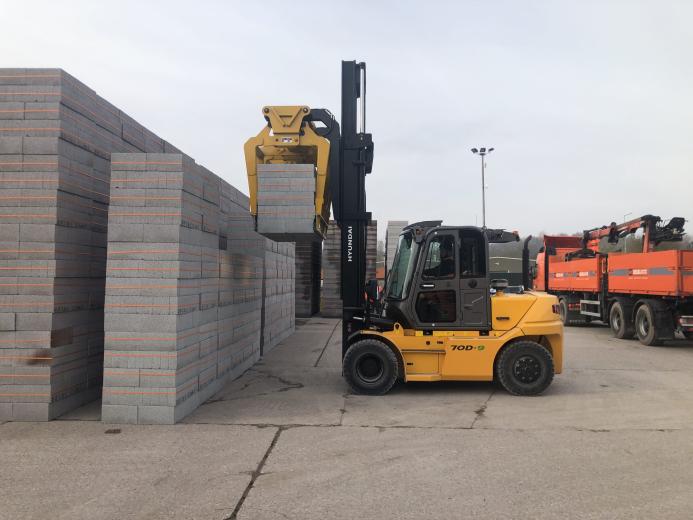National Forklift Safety Day launch
The UK’s National Forklift Safety Day (NFSD) campaign is back with a new theme exploring what actions should be taken before, during and after a forklift incident.
Supported by the slogan ‘Prevent – Manage – Learn’, this year’s initiative begins tomorrow (11 June) and will run until Monday, 9 December.
The focal point for the campaign is the seven stages of the forklift incident cycle, with each stage representing a specific strategy for ensuring the safe use of material handling equipment.
“With the theme ‘Prevent – Manage – Learn’, this year’s National Forklift Safety Day will adopt a different format from previous campaigns. Rather than taking place on a single day, National Forklift Safety Day 2024 will be extended over different days across a seven-month period, as we aim to Make Every Day National Forklift Safety Day,” explains David Goss, technical director, UKMHA.
“On each date, we will be releasing informative and engaging content relevant to each stage of the cycle. Due to the extended length of the campaign, we can provide participants with a wealth of crucial information that will enhance workplace safety and minimise the impact of an incident,” adds Goss.
The seven stages of the forklift incident cycle
1. Prepare, 11 June (Tuesday)
The first stage of the forklift incident cycle, Prepare, explores the actions that should be taken to reduce the chance of an incident becoming an accident.
2. Respond, 10 July (Wednesday)
Are you keen to learn about how to respond when an incident happens? Respond, the next stage of the incident cycle, examines what to do in the immediate aftermath of a forklift accident.
3. Investigate, 8 August (Thursday)
When an incident occurs, it is vital to adopt the right investigation methods to identify the cause of the accident. Investigate, the third strategy this NFSD campaign addresses, will provide essential tips for undertaking forklift incident investigations.
4. Report, 13 September (Friday)
The Report instalment of NFSD 2024 focuses on statutory obligations for reporting an incident. For this stage of the cycle, we will be discussing RIDDOR and LOLER reporting and what follow-up actions can be expected.
5. Restart, 12 October (Saturday)
Restart, the fifth stage of the incident cycle, examines the actions needed to safely recommence production. The media we release on the 12th of October will address a selection of vital post-incident topics, including the importance of training and thorough examination.
6. Learn, 10 November (Sunday)
Learning from errors that contributed to forklift incidents is a key step for enhancing workplace safety. Join us on Sunday the 10th of November as we delve into the Learn stage of the incident cycle. Our engaging resources help companies and professionals to learn from mistakes and pinpoint operational areas that require improvement.
7. Prevent, 9 December (Monday)
The final stage of the incident cycle, Prevent, centres on the most effective prevention strategies people should implement to ensure that forklift incidents do not occur. This topic covers near miss and good catch reporting, as well as how to spot the warning signs of imminent danger.
For more information on the campaign, visit National Forklift Safety Day







